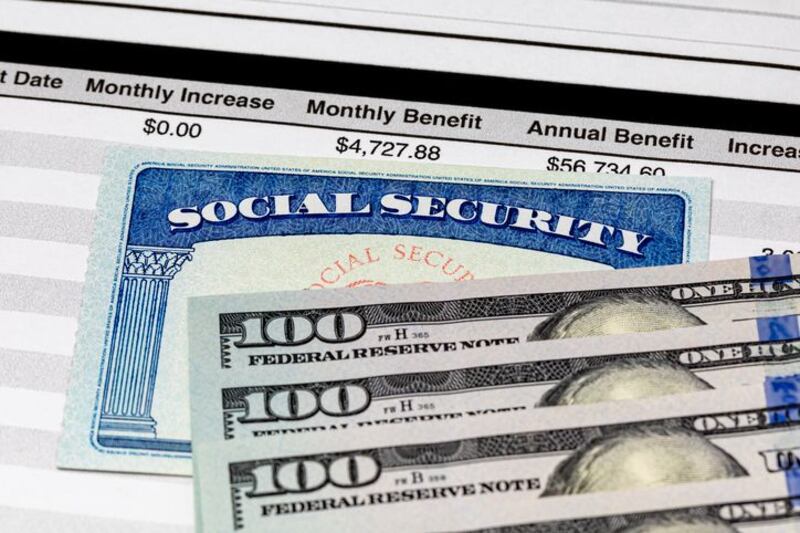Millions of Americans rely on Social Security benefits to cover essential expenses. But what happens when the Social Security Administration (SSA) says you’ve been paid too much? If you’ve received an overpayment letter from the SSA, you’re not alone—and it’s important to understand what it means, why it happens, and how you can respond.
What Is a Social Security Overpayment?
An overpayment occurs when the SSA pays more benefits than a person is entitled to receive. The agency then sends a notice—commonly referred to as an “overpayment letter”—informing the recipient of the overpayment amount and requesting repayment, typically within 30 days.
The overpayment can apply to various benefit programs including:
- Social Security Disability Insurance (SSDI)
- Supplemental Security Income (SSI)
- Retirement and Survivor Benefits
According to the SSA, overpayments happen for several reasons, and they are not always the fault of the beneficiary.
Common Reasons for Overpayments
Here are some of the most common reasons you might receive an overpayment notice:
- Unreported Income Changes: If your income increases and you don’t notify SSA promptly, it can affect your benefit eligibility.
- Living Arrangement Changes: Changes such as moving in with someone or getting married can impact your benefit amount.
- Resource Limits Exceeded: For SSI recipients, owning resources above the allowed threshold (currently $2,000 for individuals) can result in overpayments.
- Medical Recovery: If you’re receiving disability benefits and your condition improves, you may no longer qualify but continue receiving payments.
- SSA Errors: Administrative or clerical mistakes may result in incorrect payments.
Understanding how these factors affect your benefits is crucial. To avoid overpayments, beneficiaries are urged to report any relevant changes to the SSA immediately.
What Happens When You’re Overpaid?

If the SSA determines you’ve been overpaid, they will send you a written notice detailing:
- The total amount overpaid
- The reason for the overpayment
- Your repayment options
- How to appeal or request a waiver
The default expectation is that the recipient repays the full amount within 30 days. However, if you are currently receiving benefits and do not repay the full amount, the SSA may automatically withhold part—or even all—of your future monthly payments until the overpayment is recovered.
As of March 2025, the SSA has reinstated a controversial policy allowing 100% withholding of monthly benefits, compared to the previous 10%. This change can leave some recipients with no monthly benefit until their debt is fully repaid.
What You Can Do If You Receive a Notice
If you believe the overpayment notice is incorrect or unfair, you have several options:
1. Request a Reconsideration (Appeal)
If you think the SSA made a mistake, you can file a Request for Reconsideration (Form SSA-561) within 60 days of receiving the notice. This process lets you challenge the overpayment decision.
2. Request a Waiver
If the overpayment was not your fault and you cannot afford to repay it, you may request a waiver of repayment using Form SSA-632-BK. If granted, you won’t need to repay the overpaid amount.
To qualify for a waiver, you generally must show:
- The overpayment wasn’t your fault, and
- Repayment would cause financial hardship.
3. Set Up a Repayment Plan
If you agree with the overpayment but can’t pay it all at once, you can request a monthly repayment plan that suits your financial situation.
You can contact your local SSA office or call the SSA at 1-800-772-1213 to discuss your options. TTY users can call 1-800-325-0778.
How to Prevent Overpayments

While some overpayments are caused by SSA errors, many result from unreported or late-reported changes in your situation. Here are tips to help you avoid overpayments in the future:
- Report Changes Promptly: Income, living arrangements, marital status, and work activity should be reported immediately using your my Social Security account.
- Keep Records: Always keep documentation of what you reported and when you reported it.
- Review SSA Notices Carefully: Mistakes happen. If something looks wrong, contact SSA right away.
You can also find more tips in this SSA pamphlet on overpayments.
Final Thoughts
Receiving an overpayment notice from the SSA can be stressful, but it doesn’t always mean you must repay the full amount immediately—or at all. It’s essential to read the letter carefully, understand your rights, and act quickly. Whether you appeal, request a waiver, or set up a payment plan, the SSA offers options to help you manage the situation.
Above all, staying informed and proactively reporting life changes can help prevent future issues and ensure you receive the correct benefit amount.
For more official guidance, visit the Social Security Administration’s overpayment page.

Vikas is a seasoned finance writer with a keen eye for unraveling complex global financial systems. From government benefits to energy rebates and recruitment trends, he empowers readers with actionable insights and clarity. When he’s not crafting impactful articles, you can find him sharing her expertise on Social Media. You can connect with him via email at [email protected].









